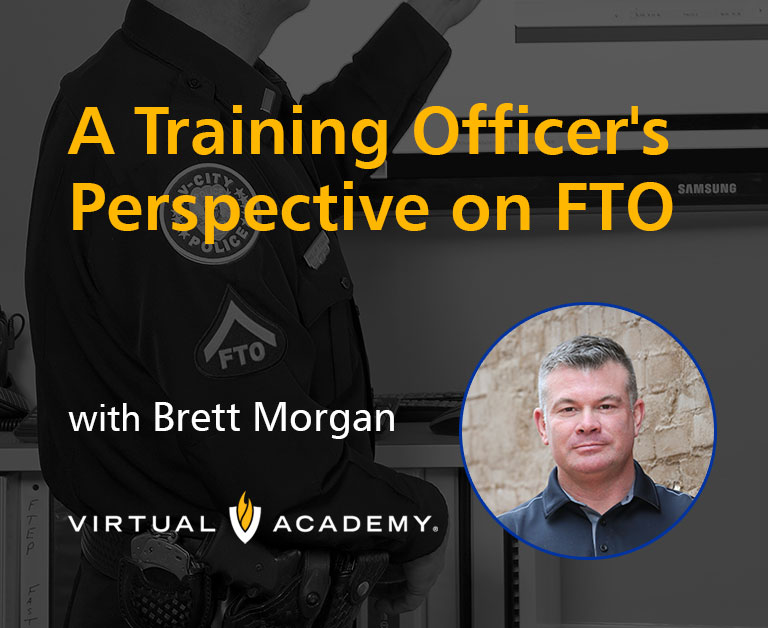By Brett Morgan, Regional Director
Technology continues to evolve, and for those agencies who embrace it, technology can make training more effective, more efficient, more trackable, and just better. The human factor involved in field training does not evolve as quickly. It is more trial and error as newly appointed field training officers attend a brief FTO course and then are given a trainee to begin one of several phases. To my knowledge, there are no field training programs for the new FTOs. Still, there are plenty of “cheats” that can circumvent some of the common errors of new FTOs such as books on leadership, biographies of great leaders, and even online courses on leadership that can be a huge help to circumvent common pitfalls.
Below are my five tips for the new or even the struggling field training officer looking to improve his/her performance as well as that of the trainee:
1. Attitude. Leave personal problems at home. Attitude is a choice. Your trainee deserves your best, the public you serve deserves your best, and your fellow officers who will soon be relying on this trainee deserve your best. Be positive, and stay positive, or maybe FTO is not for you. There is always traffic; those guys are paid to have bad attitudes (joking, kinda).
2. Catch them doing something right. There is always ample opportunity to criticize. There is an entire DOR designed to carefully articulate how a trainee screws up, how many times, and in how many specific categories. It is necessary, but look for opportunities to tell them “good job” and to be encouraging. Brag about something they did well in front of others, and never intentionally criticize in front of others. I remember eating at Denny’s at 0300 hours each night, and one of my FTOs treated it like a stand-up routine where I was the heckler being mercilessly mocked. It was demoralizing and did not contribute to my improvement.
3. Own mistakes. As FTO, you are a leader and role model to that recruit. As a human being, you will make mistakes. The recruit is looking to you as the ideal example of how to do everything correctly, and that includes how to handle mistakes and failures. Explain how you failed, why you failed, and what you are going to do to make sure you will not repeat that failure. Be an example of how the trainee should handle a mistake.
4. Be a teacher. Your trainee depends on you to teach them how to apply the enormous amount of information that has been thrown at them from the academy, from the penal code, traffic code, policy manual, criminal procedure manual, city ordinances, etc. Teaching is different from leadership, and people learn differently. An attitude of “this is the way I teach, so trainees should adjust to me” is a bad attitude but a common one. Communicate with your recruit. Ask them about their learning style. Figure out the best way to teach that specific trainee, and help them to succeed and not fail.
5. Evaluator. The most important tool of the FTO is the DOR. This is the tool that will make or break the trainee by the manner in which you effectively articulate the recruit’s performance, which is a direct reflection of your ability to train. The DOR is as much an evaluation of your ability to train as it is an evaluation of the trainee.
As previously mentioned, technology has and is evolving, and in regards to field training programs, software platforms can make the DOR more efficient and more effective. The three-ring binder, like so many things, is going the way of the Ford Pinto, and good-riddance. FTO software programs make training just plain better.



